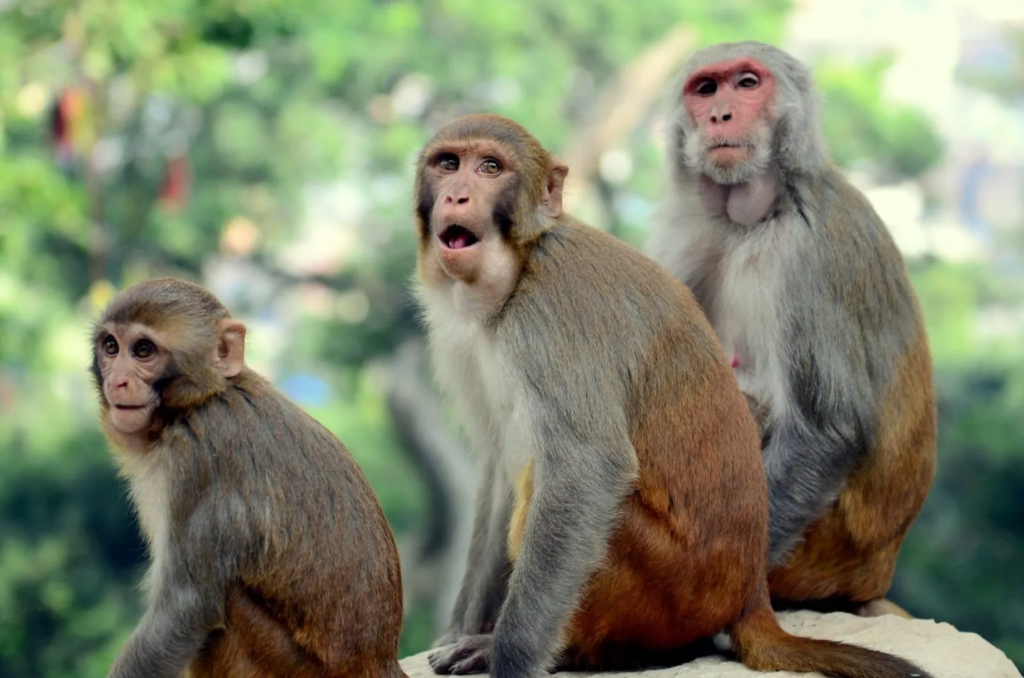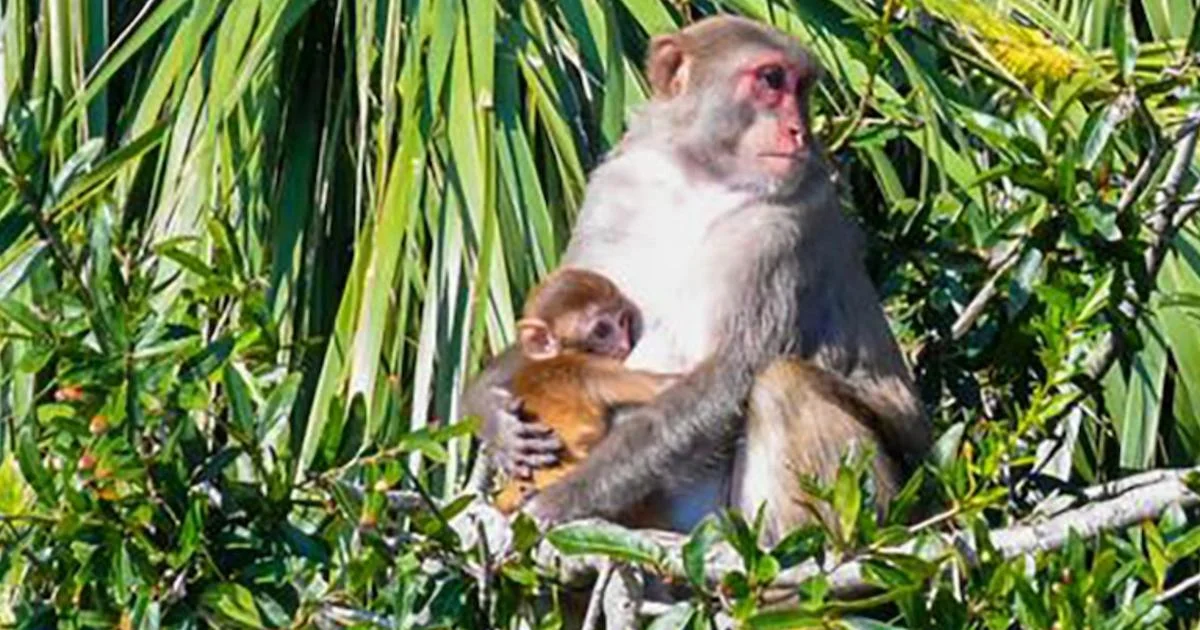The fascinating saga of 43 Escaped South Carolina Lab Monkeys has finally come to a close. After two months of living in the wild, braving harsh weather, and cleverly evading capture, the last four monkeys were recaptured, ending an incident that captured the attention of locals and animal enthusiasts alike.
The escape, which took place at Alpha Genesis, a facility specializing in breeding monkeys for medical research, sparked curiosity and concern about the implications for public safety, animal welfare, and the circumstances leading to the breakout.
The Great Escape: How It Happened
The incident began on November 6, when a worker at Alpha Genesis inadvertently left gates and latches to the monkeys’ enclosure unsecured. What followed was a mass breakout of 43 rhesus macaques, all of them females.
Known to locals as “the monkey farm,” Alpha Genesis is located near the small town of Yemassee, South Carolina, and about 50 miles northeast of Savannah, Georgia.
While the escape was unintentional, the circumstances shed light on potential lapses in protocol. According to Alpha Genesis CEO Greg Westergaard, workers at the facility are expected to follow strict guidelines when managing the enclosures.
Typically, one gate must be securely locked before opening another to prevent such incidents. However, on that fateful day, all three gates and their latches were left unsecure, allowing the monkeys to make their dash for freedom.
Read : Monkey-Type Men Becoming a Popular Dating Choice in China
The rhesus macaques, weighing about 7 pounds each and comparable in size to a domestic cat, quickly dispersed into the surrounding wooded areas. While the monkeys are primarily bred for medical research, they posed no health risk to the public, according to statements from Alpha Genesis, law enforcement, and federal health officials.
Read : Exploring Fanjingshan: China’s Sacred Mountain Sanctuary, Known as Stairways to Heaven
Nonetheless, their sudden presence in the wild prompted a search effort that combined careful planning, humane trapping, and a bit of ingenuity.
Surviving in the Wild: The Monkeys’ Two-Month Adventure
For two months, the escaped monkeys roamed the woods around Yemassee, demonstrating their resilience and adaptability. During this time, the region experienced its first snowfall in seven years, with up to three inches of snow accumulating.
Despite the challenging conditions, the monkeys managed to survive and even thrive. Their ability to endure the cold snap, forage for food, and avoid predators speaks to their intelligence and resourcefulness.

Alpha Genesis employees, with support from local authorities, embarked on a relentless mission to bring the monkeys back safely. They set up humane traps and monitored the animals closely, ensuring that no harm came to them.
The monkeys were lured with food, including peanut butter and jelly sandwiches and “monkey biscuits,” a high-protein chow specifically designed for rhesus macaques. These clever tactics proved effective, as one by one, the monkeys were coaxed back into captivity.
By the end of January, all 43 monkeys had been recaptured, including the final four. The Alpha Genesis facility confirmed that the animals were in good health upon their return, though further details about their condition were not disclosed. Their survival in the wild for two months is a testament to the species’ remarkable adaptability.
The Role of Rhesus Macaques in Medical Research
The rhesus macaques at Alpha Genesis are not just ordinary animals—they are a critical part of scientific and medical research. These monkeys have been used in research since the late 1800s, contributing to significant advancements in medicine, including the development of vaccines, treatments for diseases, and understanding of human biology.
Scientists believe that rhesus macaques and humans share about 93 percent of the same DNA. This genetic similarity makes them invaluable for studying diseases and testing treatments that could one day benefit humans. The monkeys at Alpha Genesis are bred specifically for these purposes and are sold to medical facilities and researchers around the world.

However, the incident has raised ethical questions about the conditions in which these animals are kept and the measures in place to ensure their safety and well-being. While Alpha Genesis assured the public that the monkeys posed no risk, the escape highlighted the importance of adhering to stringent protocols to prevent similar incidents in the future.
The story of the escaped rhesus macaques is both a fascinating tale of survival and a sobering reminder of the responsibilities that come with managing animals for scientific purposes.
For two months, the monkeys navigated the challenges of living in the wild, showcasing their resilience and intelligence. Meanwhile, the dedicated efforts of Alpha Genesis employees and local authorities ensured their safe return.
As the last of the monkeys was recaptured, life at the “monkey farm” returned to normal, but the incident leaves behind important lessons about animal care, facility management, and the delicate balance between scientific research and ethical considerations.
The escape may have been an unexpected detour, but it also served as a reminder of the close connection between humans and the animals we rely on to advance our understanding of the natural world.

